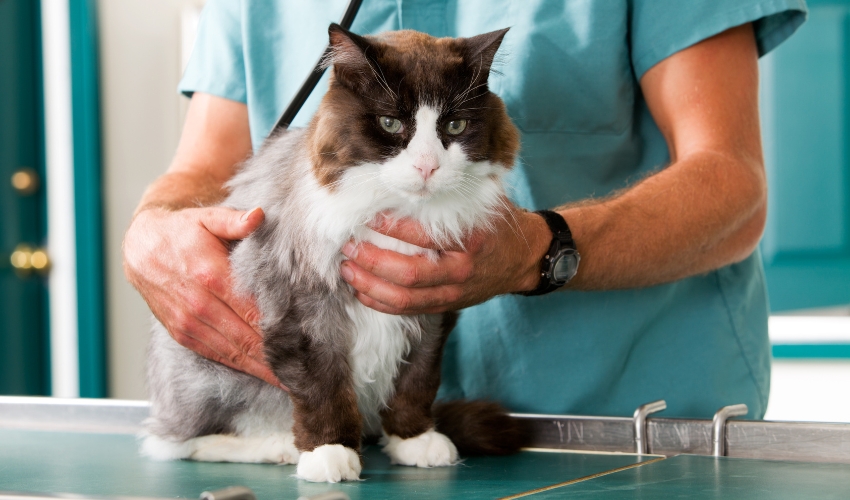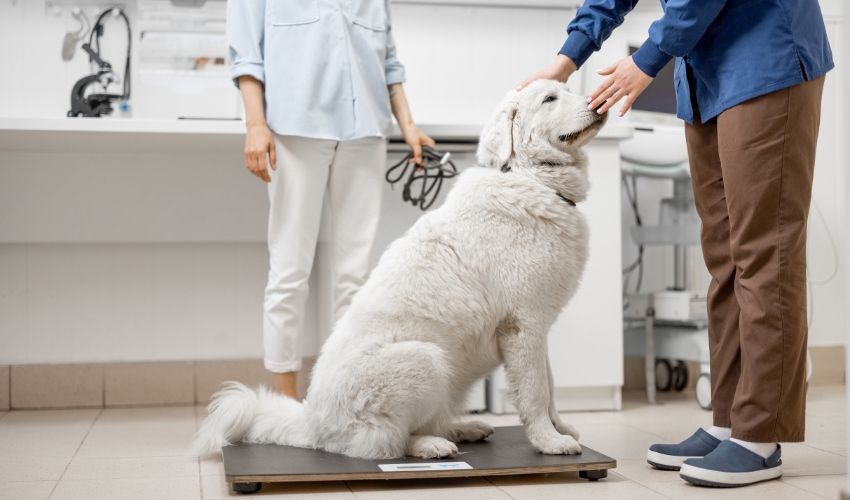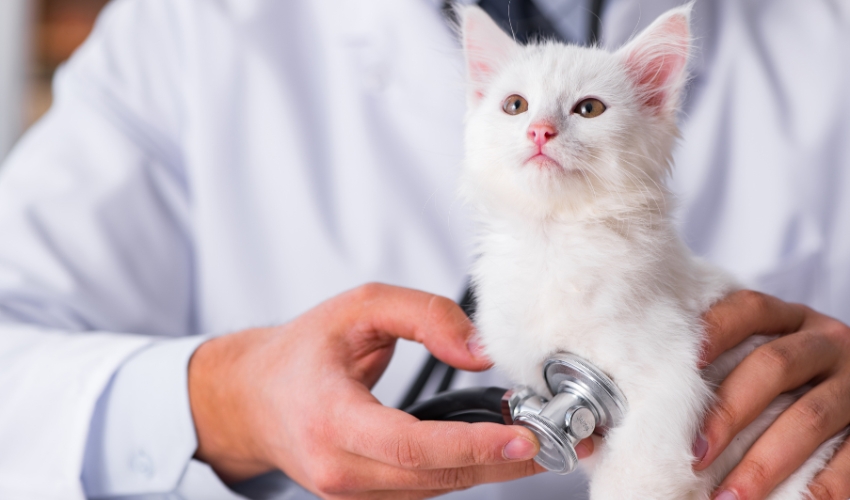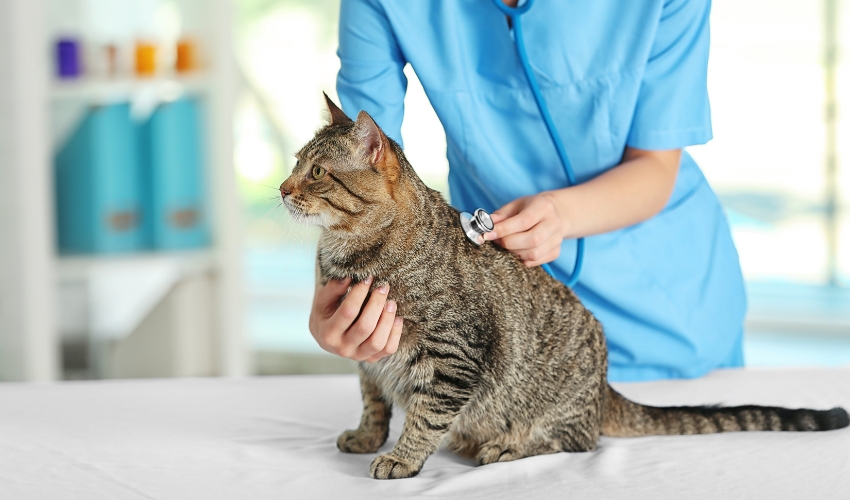Pet Diagnostics
Our care at New Haven Animal Hospital starts from a foundation of comprehensive pet diagnostic services right at our practice in Ontario, CA, to give your furry companions tailor-fit veterinary care.
Comprehensive Pet Diagnostics in Ontario, CA
From routine wellness checks to more complex health concerns, diagnostics play a critical role in identifying issues early and ensuring your pet receives the right care at the right time. Our hospital offers a range of diagnostic services, including bloodwork, radiographs, canine heartworm testing, feline triple snap testing, intestinal parasite testing, and urine testing.
Why Pet Diagnostics Matter
Pet diagnostics are essential for uncovering health problems that may not be visible through a physical examination alone. Whether it’s spotting an early infection, monitoring organ function, or checking for internal parasites, diagnostic testing allows veterinarians to get a full picture of your pet’s health. This leads to faster, more accurate diagnoses and better treatment outcomes.
Our advanced diagnostic services at New Haven Animal Hospital help pinpoint underlying conditions before they become serious, giving your pet the best chance for a long, healthy life.
Bloodwork: Understanding Your Pet’s Internal Health
Bloodwork is one of the most important diagnostic tools for evaluating a pet’s overall health. It provides vital information on organ function, infection, and immune system status. Regular blood tests are especially important for older pets or those with chronic conditions. Whether it’s a complete blood count (CBC) or a biochemical profile, bloodwork helps us detect abnormalities early, so we can intervene quickly.
Bringing your pet in for routine blood tests can help us catch issues like anemia, kidney disease, or liver problems before symptoms appear, ensuring prompt and effective treatment.
Radiographs: A Closer Look Inside
Radiographs (or X-rays) are a valuable imaging tool that allows us to see what’s happening inside your pet’s body without invasive procedures. This diagnostic method is commonly used to evaluate bones, lungs, heart, abdomen, and other organs. Whether your pet has ingested something they shouldn’t have, or there’s a concern about a fracture, radiographs help identify the problem and guide treatment decisions.
Radiographs are crucial when dealing with unexplained pain, trauma, or difficulty breathing, providing clarity on the situation so that appropriate care can begin.
Canine Heartworm Testing: Protecting Your Dog from Dangerous Infections
Heartworm disease is a serious condition that can be fatal if left untreated. Canine heartworm testing is a simple blood test that detects the presence of heartworms in your dog. Early detection is key to preventing severe complications like heart failure or lung disease.
It’s recommended to test dogs annually, even if they’re on heartworm prevention medication, as no treatment is 100% effective. Catching heartworms early increases the chances of a full recovery.
Feline Triple Snap Testing: Early Detection for Cats
Feline triple snap testing is an essential diagnostic tool for detecting common viral infections in cats, such as feline leukemia virus (FeLV), feline immunodeficiency virus (FIV), and heartworms. These diseases can significantly affect a cat’s health and quality of life if left undetected.
The triple snap test provides quick results, allowing for timely treatment or preventive measures. Regular testing is especially important for outdoor or high-risk cats, as early diagnosis can make a significant difference in treatment outcomes.
Intestinal Parasite Testing: Safeguarding Digestive Health
Intestinal parasites are a common issue in pets, especially younger animals or those that spend time outdoors. Parasites like roundworms, hookworms, and giardia can cause digestive upset, weight loss, and in some cases, more serious health problems. Intestinal parasite testing involves analyzing a stool sample to detect the presence of these parasites.
Routine testing is recommended, as parasites are often asymptomatic in the early stages. This type of diagnostic testing is crucial for keeping your pet’s digestive health in check and preventing the spread of parasites to other pets or even humans.
Urine Testing: Monitoring Urinary and Kidney Function
Urine testing is an effective way to assess your pet’s kidney and urinary tract health. This diagnostic method helps us identify issues like infections, stones, and kidney disease. By analyzing your pet’s urine, we can detect problems that may not show up on blood tests, such as dehydration or urinary crystals.
It’s particularly important to perform urine tests in older pets, those showing signs of discomfort while urinating, or animals with a history of urinary issues. Catching these conditions early can help prevent more serious health problems down the road.
When to Seek Diagnostic Services for Your Pet
While routine diagnostic testing is recommended as part of regular wellness exams, there are specific times when it’s critical to seek additional diagnostics. If your pet is showing signs of illness, such as vomiting, diarrhea, lethargy, or changes in appetite, it’s a good idea to bring them in for diagnostic testing. This helps us quickly identify the underlying cause and begin the necessary treatment.
At New Haven Animal Hospital in Ontario, CA, we’re committed to offering thorough and accurate pet diagnostics to ensure your pet gets the care they need to stay healthy and happy. Reach out to us today to schedule your pet’s diagnostic appointment!
Veterinary Services in Ontario, CA
Pet Diagnostics
Pet Dental Cleanings
Pet Health Exams
Pet Illness Treatment
Pet Preventive Care
Pet Spay/Neuter






